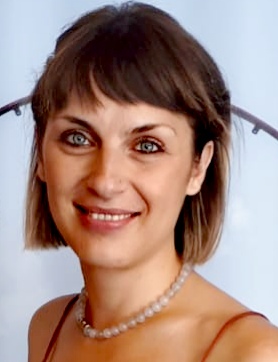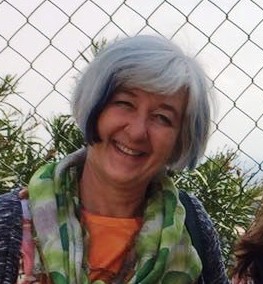Studying at the University of Verona
Here you can find information on the organisational aspects of the Programme, lecture timetables, learning activities and useful contact details for your time at the University, from enrolment to graduation.
Academic calendar
The academic calendar shows the deadlines and scheduled events that are relevant to students, teaching and technical-administrative staff of the University. Public holidays and University closures are also indicated. The academic year normally begins on 1 October each year and ends on 30 September of the following year.
Course calendar
The Academic Calendar sets out the degree programme lecture and exam timetables, as well as the relevant university closure dates..
| Period | From | To |
|---|---|---|
| I semestre (Lingue e letterature straniere) | Sep 26, 2022 | Dec 23, 2022 |
| II semestre (Lingue e letterature straniere) | Feb 13, 2023 | May 27, 2023 |
| Session | From | To |
|---|---|---|
| ESAMI LINGUE - sessione invernale | Jan 9, 2023 | Feb 11, 2023 |
| ESAMI LINGUE - sessione estiva | May 29, 2023 | Jul 22, 2023 |
| ESAMI LINGUE - sessione autunnale | Aug 28, 2023 | Sep 23, 2023 |
| Session | From | To |
|---|---|---|
| LAUREE LINGUE - sessione autunnale (a.a. 2021-2022) | Nov 7, 2022 | Nov 12, 2022 |
| LAUREE LINGUE - sessione straordinaria (a.a. 2021-2022) | Mar 31, 2023 | Apr 6, 2023 |
| LAUREE LINGUE - sessione estiva (a.a. 2022-2023) | Jul 10, 2023 | Jul 15, 2023 |
Exam calendar
Exam dates and rounds are managed by the relevant Foreign Languages and Literatures Teaching and Student Services Unit.
To view all the exam sessions available, please use the Exam dashboard on ESSE3.
If you forgot your login details or have problems logging in, please contact the relevant IT HelpDesk, or check the login details recovery web page.
Should you have any doubts or questions, please check the Enrollment FAQs
Academic staff
 piergiovanna.grossi@univr.it
piergiovanna.grossi@univr.it
Study Plan
The Study Plan includes all modules, teaching and learning activities that each student will need to undertake during their time at the University.
Please select your Study Plan based on your enrollment year.
1° Year
| Modules | Credits | TAF | SSD |
|---|
1st foreign language2nd foreign language1st foreign literature 2nd foreign literature One module among the following (philology must be related to one of the chosen languages)2° Year activated in the A.Y. 2023/2024
| Modules | Credits | TAF | SSD |
|---|
One activity between the followingThree activities among the following (related to the languages and literatures chosen)Digital lab| Modules | Credits | TAF | SSD |
|---|
1st foreign language2nd foreign language1st foreign literature 2nd foreign literature One module among the following (philology must be related to one of the chosen languages)| Modules | Credits | TAF | SSD |
|---|
One activity between the followingThree activities among the following (related to the languages and literatures chosen)Digital labLegend | Type of training activity (TTA)
TAF (Type of Educational Activity) All courses and activities are classified into different types of educational activities, indicated by a letter.
Letteratura Inglese - Master 2 (2023/2024)
Teaching code
4S010860
Teacher
Coordinator
Credits
6
Language
English
Scientific Disciplinary Sector (SSD)
L-LIN/10 - ENGLISH LITERATURE
Period
I semestre (Lingue e letterature straniere) dal Sep 25, 2023 al Dec 22, 2023.
Courses Single
Authorized
Learning objectives
This course is held in English and aims at providing Students with advanced notions of English Literature especially in relation to different critical methodologies and interpretations of the literary text. it also aims to develop an autonomous and original critical approach to literary texts. On successful completion of the course, students will be able to: - read and interpret literary texts by structuring ideas and concepts with argumentative skill and expressive mastery; - critically comment on the texts so as to demonstrate an in-depth knowledge of the theoretical debate surrounding them, - develop critical and autonomous thinking by personally elaborating on debated issues.
Prerequisites and basic notions
The English Literature 2LM exam can only be taken if students have passed the first-year English Language and Literature exams.
Program
"Violence and Vengeance: Forms of the Female Tragic Experience in Shakespeare"
The course explores the relation between violence and vengeance in a few examples of female tragic experiences in the genres of the epillion and the revenge tragedy within a broader discussion of Renaissance 'rape culture'. It will examine, in particular, the cases of Lucretia, Lavinia and Ophelia in Shakespeare’s The Rape of Lucrece, Titus Andronicus and Hamlet. The course includes a preliminary introduction to a variety of critical approaches to literary and dramatic texts and their practical application.
Attending and non-attending students alike are required to do all the readings indicated below. Where "optional reading" is specified within brackets, it is understood that this is functional to furthering or facilitating the study, but is not compulsory.
Further teaching material will be available for download from the MOODLE repository.
Primary Texts:
• William Shakespeare, The Rape of Lucrece, in Shakespeare's poems: Venus and Adonis, the rape of Lucrece and the shorter poems, edited by Katherine Duncan-Jones and H. R, Woudhuysen, London, Bloomsbury, 2007
• William Shakespeare, Titus Andronicus, edited by Jonathan Bate, Arden Shakespeare, Revised Edition, London, Bloomsbury, 2018
• William Shakespeare, Hamlet, edited by Ann Thompson and Neil Taylor Arden Shakespeare, Revised Edition, London, Bloomsbury, 2016
Secondary Texts:
• Jonathan Culler, Literary Theory. A Very Short Introduction, Oxford, Oxford University Press, 2006.
• Donatella Pallotti, “Maps of Woe. Narratives of Rape in early Modern England”, Journal of Early Modern Studies, 2 (2013), pp. 211-39 (optional reading).
- No editions other than those indicated in the syllabus are to be used. Texts are to be read in full. In the case of articles or book chapters, read the indicated page-range. Primary texts must be read in the original language.
- Any files uploaded in moodle other than those indicated in the above list, are not intended as substitutes for the texts in the syllabus.
- Other material in moodle not indicated in the syllabus is intended as optional.
Bibliography
Didactic methods
The course consists of face-to-face lectures with the active participation of students. The course will be held in English. Attending students will have the opportunity to take one self-assessment test at the end of the course. A written calendar of the topics that will be dealt with will be circulated in class at the beginning of the course.
Learning assessment procedures
Knowledge acquisition will be evaluated through an oral exam, which will consist in a discussion of the topics dealt with during the course. Alternatively, students may submit an essay in English of approximately 5,000 words at least a week before the exam. The essay will then be presented and discussed orally. For essay-writing guidelines please refer to the following text: Richard Marggraf Turley, Writing Essays, London and New York, Routledge, 2016 (2nd edition). Before submitting their essays, students are required to discuss their project with the teacher.
Evaluation criteria
Students are expected to demonstrate:
1) knowledge of the critical methodologies employed during the course as well as of the literary works discussed during classes;
2) critical reasoning abilities;
3) adequate expository and argumentative skills in English.
Criteria for the composition of the final grade
The final grade will result from the average mark students will earn on the basis of the three criteria indicated above.
Exam language
Inglese.
Type D and Type F activities
Nei piani didattici di ciascun Corso di studio è previsto l’obbligo di conseguire un certo numero di CFU di tipologia D e di tipologia F.
CFU D (attività a scelta dello studente)
I CFU D possono essere acquisiti mediante:
- insegnamenti non obbligatori nel proprio piano didattico (previa approvazione del Presidente del Collegio didattico per insegnamenti non selezionabili in autonomia)
- attività accreditate dal Collegio didattico
- competenze linguistiche (diverse o ulteriori) rispetto a quelle obbligatorie
- tirocini o stage
- TALC (competenze trasversali).
Competenze trasversali TALC
Scopri i percorsi formativi promossi dal Teaching and learning centre dell'Ateneo, destinati agli studenti iscritti ai corsi di laurea, volti alla promozione delle competenze trasversali: https://talc.univr.it/it/competenze-trasversali
Nota bene: i corsi TALC sono riconosciuti solo come CFU D.
Il numero di CFU D va calcolato complessivamente sull’intero triennio/biennio e non è legato all'annualità.
CFU F
I CFU F sono solitamente relativi ad abilità informatiche, competenze linguistiche, stage e tirocini, attività utili all’inserimento nel mondo del lavoro e altre attività accreditate come tali dal Collegio Didattico. Nel corso di laurea magistrale in Languages, Literatures and Digital Culture sono previste le seguenti tipologie:
curriculum Languages and Literatures:
• 6 CFU per Teaching Lab (incluso tirocinio/project work)
• 6 CFU per ulteriori attività
curriculum Digital Culture:
• 6 CFU per laboratori
• 6 CFU per Digital Lab (incluso tirocinio/project work)
Le eventuali attività di stage sono finalizzate a far acquisire allo studente una conoscenza diretta in settori di particolare utilità per l’inserimento nel mondo del lavoro e per l’acquisizione di abilità specifiche d’interesse professionale.
| years | Modules | TAF | Teacher |
|---|---|---|---|
| 1° | Shake Shakespeare Up: dall'adattamento alla messa in scena | D | Not yet assigned |
To discover all the teaching activities accredited by the foreign teaching college click here
Career prospects
Module/Programme news
News for students
There you will find information, resources and services useful during your time at the University (Student’s exam record, your study plan on ESSE3, Distance Learning courses, university email account, office forms, administrative procedures, etc.). You can log into MyUnivr with your GIA login details: only in this way will you be able to receive notification of all the notices from your teachers and your secretariat via email and soon also via the Univr app.
Student login and resources
Linguistic training CLA
Attività accreditate D/F
Calendario didattico dettagliato
Competenze linguistiche (prima e seconda lingua)
Language skills
Compilazione del piano didattico
Corso di Lingua portoghese
Double degree
The University of Verona, through a network of agreements with foreign universities, offers international courses that enable students to gain a Double/Joint degree at the time of graduation. Indeed, students enrolled in a Double/Joint degree programme will be able to obtain both the degree of the University of Verona and the degree issued by the Partner University abroad - where they are expected to attend part of the programme -, in the time it normally takes to gain a common Master’s degree. The institutions concerned shall ensure that both degrees are recognised in the two countries.
Places on these programmes are limited, and admissions and any applicable grants are subject to applicants being selected in a specific Call for applications.
The latest Call for applications for Double/Joint Degrees at the University of Verona is available now!
Documents
| Title | Info File |
|---|---|
|
|
pdf, it, 316 KB, 28/09/23 |
|
|
octet-stream, it, 22 KB, 28/09/23 |
|
|
pdf, it, 520 KB, 28/09/23 |
Erasmus+ e altre esperienze all'estero
Percorso verso l'insegnamento
Una delle possibilità per gli studenti dopo il conseguimento della laurea magistrale è l’insegnamento nella scuola: l’Università degli Studi di Verona è tra gli enti accreditati dal MIUR per l'erogazione di corsi di formazione e aggiornamento e qualificazione delle competenze per insegnanti. Il percorso per diventare insegnante è legato alle seguenti condizioni:
1a CONDIZIONE
Il possesso della laurea magistrale o a ciclo unico, oppure diploma di II livello dell’alta formazione artistica, musicale e coreutica, oppure titolo equipollente o equiparato, coerente con le classi di concorso vigenti alla data di indizione del concorso; il futuro insegnante dovrà, inoltre, soddisfare i requisiti di accesso previsti per la classe di concorso scelta.
Per le classi di concorso:
- A-24 (Lingue e culture straniere negli istituti di istruzione secondaria di II grado) e
- A-25 (Lingua inglese e seconda lingua comunitaria nella scuola secondaria I primo grado)
sono previsti i seguenti requisiti di accesso (vedi l’allegato A al DM 259/2017):
1) 18 CFU nei settori scientifico disciplinari L-LIN/01 e/o L-LIN/02
2) 36 CFU della lingua di specializzazione scelta
3) 24 CFU della letteratura relativa alla lingua di specializzazione scelta.
I requisiti specifici delle classi di concorso A-24 e A-25 possono essere soddisfatti nell’ambito dei piani didattici o negli esami a scelta libera superati all’interno del percorso di studio universitario (Laurea Triennale e Magistrale), oppure attraverso l’iscrizione a corsi singoli.
Il requisito relativo alla lingua di specializzazione (2) è soddisfatto (sulla base degli esami previsti nel piano didattico) nell’ambito del percorso formativo che comprende una laurea triennale dell’area di Lingue e Letterature Straniere, seguita da una laurea magistrale della medesima area (qualsiasi Corso di Laurea triennale e magistrale dell’area di Lingue e Letterature Straniere).
Per verificare i requisiti relativi alla letteratura di specializzazione (3) e agli insegnamenti di linguistica che appartengono ai settori scientifico-disciplinari di L-LIN/01 e L-LIN/02 (1), invece, gli studenti sono invitati a consultare il proprio piano didattico per verificare il numero di CFU previsti nel percorso formativo.
2a CONDIZIONE
Il possesso dei 24 crediti formativi universitari o accademici acquisiti in forma curricolare, aggiuntiva o extra curricolare nelle discipline antropo-psico-pedagogiche e nelle metodologie e tecnologie didattiche, garantendo comunque il possesso di almeno 6 CFU conseguiti in ciascuno di almeno tre dei seguenti quattro ambiti disciplinari:
1) pedagogia;
2) pedagogia speciale e didattica dell’inclusione;
3) psicologia; antropologia;
4) metodologie e tecnologie didattiche.
Percorso formativo 24 CFU
Consente di acquisire uno dei requisiti di partecipazione al concorso nazionale per l’accesso al “percorso annuale di formazione iniziale e prova” su posti comuni e di sostegno, ai sensi del D.Lgs 13 aprile 2017, n. 59 come modificato dalla legge n.145 del 30/12/2018 (c. dal 792 al 796).
I settori scientifico disciplinari, gli obiettivi formativi, le modalità organizzative e gli eventuali costi sono stati stabiliti dal D.M. 10 agosto 2017, n. 616.
Per sapere quali insegnamenti della propria carriera vengano automaticamente riconosciuti si rimanda alla pagina del sito di Ateneo dedicata al percorso formativo 24 CFU.
Si consiglia agli interessati di consultare la pagina https://www.univr.it/it/i-nostri-servizi/futuri-studenti/post-laurea/formazione-degli-insegnanti in costante aggiornamento, in particolare sezione documenti in cui vengono pubblicati formulari, programmi degli insegnamenti ed elenchi di studenti ammessi.
Tra gli insegnamenti automaticamente riconosciuti nell’ambito dei 24 CFU vi sono: Insegnamento delle lingue (L-LIN/02) e Apprendimento delle lingue (L-LIN/02), previsti nel piano didattico del curriculum Linguistico-didattico del CdS di Lingue e letterature straniere (LLS).
Gli studenti immatricolati nel CdS di LLS che hanno scelto i curricula Letterario e Artistico possono comunque inserire tali insegnamenti nel piano di studi come crediti D (a scelta libera).
Gli studenti immatricolati negli altri CdS triennali del Dipartimento di Lingue e letterature straniere (Lingue e culture per il turismo e il commercio internazionale; Lingue e culture per l’editoria [a esaurimento]; Lingue e letterature per l’editoria e i media digitali) posso inserire tali insegnamenti nella propria carriera solo su eventuale autorizzazione preventiva del Presidente del Collegio Didattico (mediante Help desk).
Il soddisfacimento della 1a e 2a condizione è requisito obbligatorio per partecipare ai concorsi di abilitazione o specifici percorsi post lauream previsti dal Ministero.
Presentazione dei corsi di studio e Open day
Prova finale
La prova finale, cui sono attribuiti 18 CFU, consiste nella preparazione, presentazione e discussione di un lavoro scritto su un argomento che riguardi una disciplina in cui sia stato superato almeno un esame nella carriera magistrale. Si tratta di una ricerca approfondita che dovrà produrre un saggio in lingua italiana o straniera di almeno ottanta cartelle. Guidato dal relatore, lo studente dimostrerà le proprie capacità di raccogliere informazioni e materiali bibliografici, di rielaborare e collegare tra loro le letture effettuate, di applicare conoscenze teorico-metodologiche all'analisi dei testi o alle problematiche affrontate. Lo studente potrà chiedere l’assegnazione di un argomento per la tesi dopo aver acquisito almeno 50 CFU del biennio.
La discussione della tesi avviene in presenza di una Commissione di Laurea composta da non meno di 5 docenti dell’Ateneo.
Alla prova finale potranno essere attribuiti non più di 11 punti su 110.
Lo studente potrà chiedere l’assegnazione di un argomento per la tesi dopo aver acquisito almeno 50 CFU del biennio.
Per le altre disposizioni, si rimanda espressamente al Regolamento Didattico di Ateneo e al Regolamento di Ateneo per gli studenti.
Il voto di laurea è formato da:
a) la media aritmetica dei voti conseguiti negli esami, rapportata a 110,
b) la valutazione dell’esame di laurea: un massimo di 11 punti riservati alla tesi magistrale e relativa discussione. Al candidato che abbia ottenuto il massimo dei voti può essere concessa la distinzione della lode, se la Commissione è unanime nel giudicare eccellente la tesi e ottima la discussione in sede di esame. A tesi particolarmente significative può essere riconosciuta anche la dignità di stampa.
c) punti supplementari di incentivazione:
- un massimo di 2 punti per le lodi (1 punto per due lodi, 2 punti per più lodi).
- 2 punti per la partecipazione al Programma Erasmus o assimilato, a condizione che lo studente: abbia acquisito almeno 12 CFU per un semestre di mobilità nel corso del ciclo di studi (24 CFU per due semestri di mobilità) e consegua il titolo finale entro la durata normale del corso di studi.
- 1 punto per la partecipazione al Programma Erasmus o assimilato, a condizione che lo studente: abbia acquisito almeno 12 CFU per un semestre di mobilità nel corso del ciclo di studi (24 CFU per due semestri di mobilità) e consegua il titolo finale anche oltre la durata normale del corso di studi.
Non possono essere attribuiti punti di incentivazione per qualsiasi esperienza all’estero svolta dallo studente su iniziativa privata, anche se riconosciuta come equipollente dal Dipartimento/Collegio Didattico.
Adempimenti amministrativi, scadenze domanda di laurea, calendari delle discussioni di laurea al seguente link Sessioni di laurea
Stage e tirocini
Le attività di stage sono finalizzate a far acquisire allo studente una conoscenza diretta in settori di particolare interesse per l’inserimento nel mondo del lavoro e per l’acquisizione di abilità professionali specifiche.
Le attività di stage sono svolte sotto la diretta responsabilità di un singolo docente presso studi professionali, enti della pubblica amministrazione, aziende accreditate dall’Ateneo veronese.
I crediti maturati in seguito ad attività di stage saranno attribuiti secondo quanto disposto nel dettaglio dal “Regolamento d’Ateneo per il riconoscimento dei crediti maturati negli stage universitari” vigente.
- Tutte le informazioni in merito agli stage per futuri studenti sono disponibili alla pagina Stage e tirocini.
- Tutte le informazioni in merito agli stage per studenti iscritti sono pubblicate in MyUnivr - come fare per - stage e tirocini.
- Tutte le informazioni in merito agli stage per le aziende sono disponili alla pagina Stage e tirocini per azienze.
Ulteriori informazioni al seguente link https://www.univr.it/it/i-nostri-servizi/gestione-carriere-studenti-lingue-e-letterature-straniere/stage-e-tirocini-lingue-e-letterature-straniere

 +39 045802 8409
+39 045802 8409




































